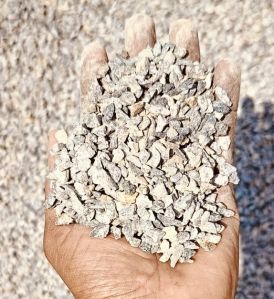
Glitter Epoxy Grout
Get Price Quote
1000 Bottle (MOQ)
Leaf Paints HawkGuard Chamak Is Epoxy grout Glittery metallic compound comes in bright vibrant colors Gold, with LP HawkGuard epoxy grout shades to ceramic tile, vitrified tile and mosaic tile joints. It sparkle tile joints and it add up a new beautiful look to your tiling projects. Benefits : Maintain Hygiene Uniform Colour Non-cracking Chemical Resistant Minimum Maintenance Excellent Adhesion Grouting On : Ceramic Tiles Vitrified Tiles Porcelain Tiles Mosaic Marbles Granite And Stones Recommended Area :Commercial Area, Residential Area.

river sand
6 - 7 Per kilogram
20 Tons (MOQ)
1 tractor = 100 cube feet Sand is a crucial part of construction, used in a variety of applications ranging from concrete mixtures to masonry work. It is important to understand the different types of sand used in construction, as they have varying characteristics that affect their suitability for specific applications. In this blog, we will explore the various types of sand used in construction, their properties, and typical applications. By understanding the differences between these types of sand, builders and construction professionals can choose the most appropriate sand for each application, ensuring optimal strength, durability, and overall quality of their constructions. At the same time, you can get a better idea of different aspects of construction. River sand is a naturally occurring type of sand sourced from riverbeds. What distinguishes it is its smooth, rounded particles, which make it highly workable. Due to its workability, river sand is a type of sand used in construction tasks that require precision and attention to detail, such as bricklaying, plastering and concrete mixing. Its rounded particles make it easy to mix and place accurately, making it a popular choice for projects demanding precision. Why sand purchase in volumetric Wet sand is heavier than dry sand, meaning buyers paying more for water content rather than the sand. volumetric measurements, you ensure you are paying for the actual volume of sand, not for its moisture. volumetric measurement ratio with all construction project requirements, as sand is often calculated by cubic meters for concrete mixing or other building purposes, bulk transport based on volume capacity rather than weight, making volumetric purchasing best for logistics. Overall, buying river sand by volume ensures fairer pricing, consistency, and easy for use in construction projects.
Best Deals from RCC Material

6 mm Stone Chips
2,200 - 2,400 Per Unit
25 Ton (MOQ)

Quartz
Get Price Quote
Quartz, Iron Ore, Quartzite